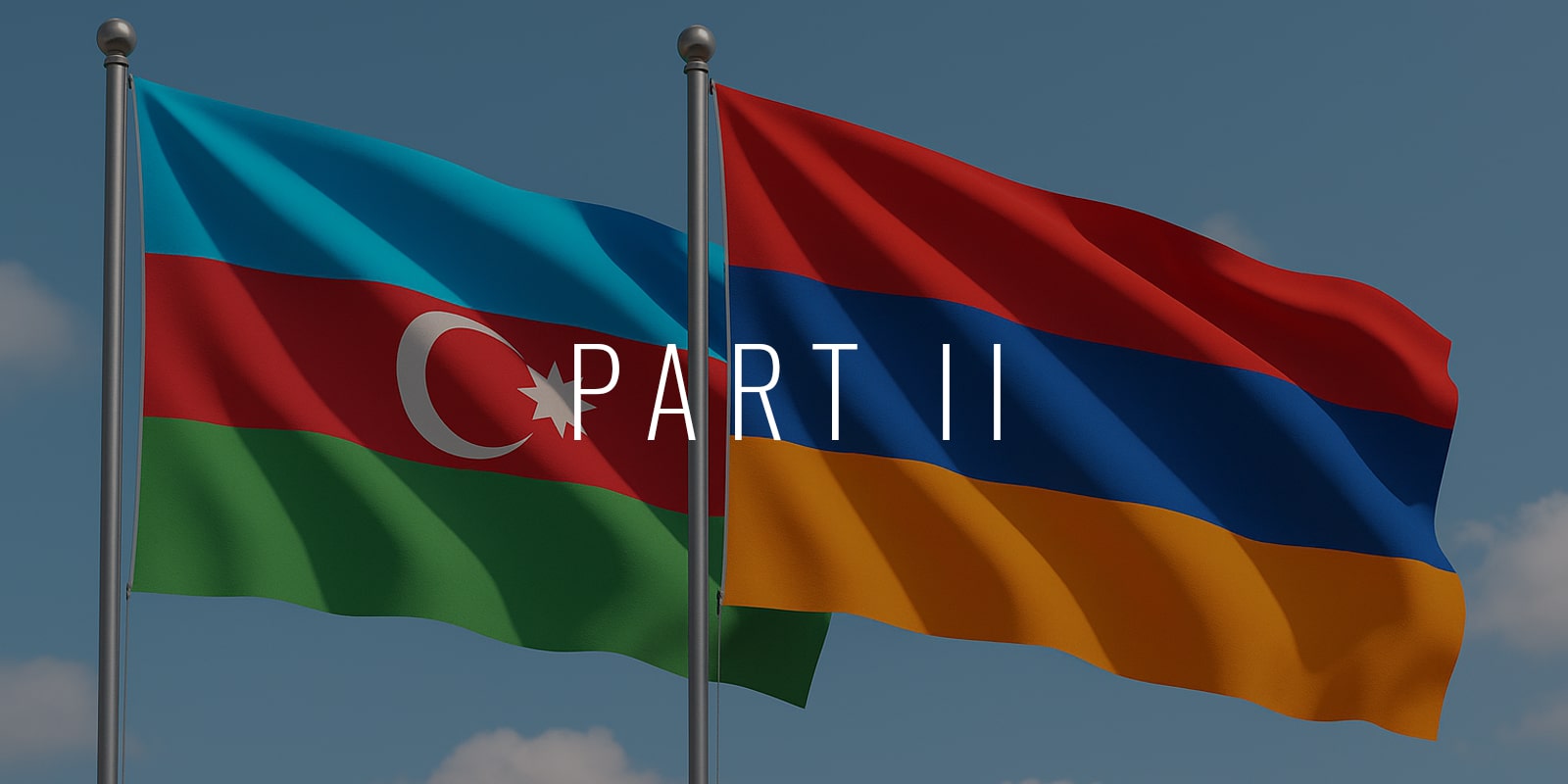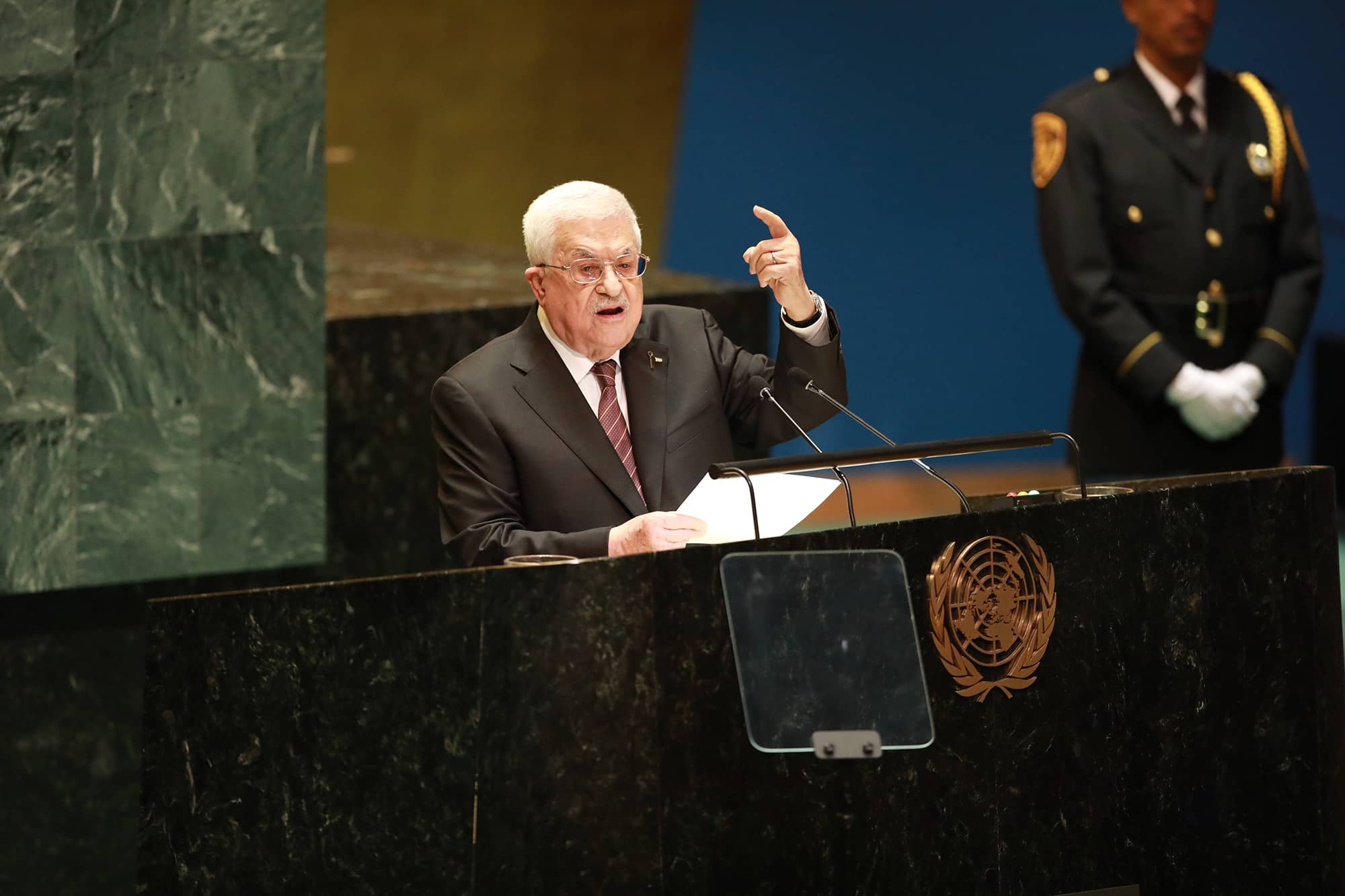Part II: Moscow Loses Its Grip on the Caucasus*
The declaration signed in Washington by Azerbaijan and Armenia, in which they expressed their intention to peacefully resolve the conflict between them has prompted numerous positive official reactions from various countries. Ending long-standing hostility and unblocking trade routes in the South Caucasus is critically important not only for the region but also for Asia and Europe as a whole—especially today, amid the global restructuring of supply chains and transit routes due to the war in Ukraine. The South Caucasus serves as a key crossroads, and stabilizing the region could positively impact many stakeholders.
However, there has also been a significant backlash from two countries that have actively exploited tensions in the South Caucasus for decades—Russia and Iran.
Foreign Ministry spokesperson Maria Zakharova articulated the Kremlin’s official position: “The Russian Federation is interested in ensuring stability and prosperity in the South Caucasus. One of the primary conditions is the comprehensive normalization of relations between Azerbaijan and Armenia, grounded in mutual consideration of both nations’ interests. We consistently support all efforts to achieve this goal, which is essential for regional security. Therefore, the meeting between the leaders of the South Caucasus republics in Washington, facilitated by the United States, merits a positive assessment. We hope this step will advance a peaceful agenda. At the same time, until recently, Baku and Yerevan have maintained that they prefer direct dialogue without third-party mediation…”
Other officials were more cautious. Alexey Chepa, deputy chairman of the State Duma’s International Affairs Committee, argued that “The Zangezur Corridor—already dubbed the ‘Trump Corridor’—changes the balance of power in the South Caucasus and is a significant political step. It could seriously undermine Iran’s interests, significantly elevate Turkey’s position, all under U.S. control, with absolutely no participation from Russia. It also affects the interests of China and, naturally, the neighboring countries of the South Caucasus.”
The Russian reaction closely resembles Iran’s response noted in Part One. On the level of official statements, Russia accepts the treaty overall and considers it an internal matter for the two concerned countries. However, informal press and social media reactions reveal a more complicated picture. Amid the Kremlin’s feigned
indifference, Russian propagandists, experts, and analysts are sounding the alarm. A vivid example is popular talk-show host Vladimir Solovyov, who declared that NATO “will now penetrate the South Caucasus, which means that perhaps the current ‘Special Military Operation’—as the Russian authorities refer to the war in Ukraine—will be far from the last.”
Of course, the chief propagandist’s threats do not necessarily indicate that the Kremlin is leaning toward starting a new war in the Caucasus. Yet, it is essential to grasp the seriousness with which the Kremlin views the situation, especially considering its recent tensions with Baku.
An expert at the Caucasus Institute, Grant Mikaelian, believes that the Zangezur Corridor will violate Armenia’s sovereignty and contradict its interests: “We understand that this is already the alienation of territory—for 99 years, it will not be Armenian territory. The original goal of Azerbaijan and Turkey, who are the initiators of this project, is to strengthen their positions in the region.” He called the upcoming peace treaty “the region’s transformation into a second Ukraine.”
Andrei Manoilo, a political scientist and member of the Scientific Council under Russia’s Security Council, stated that the United States intends to use the Zangezur Corridor to establish a military base in Armenia and completely push Russia out of the region. He added, “From the counterterrorism security standpoint, the Americans, by controlling this corridor, will be pursuing their objectives. They will not be fighting against the transit of drugs, militants, and so on.”
Other commentators suggest looking at the situation in the context of China’s rivalry. The author of an article in the newspaper Vzglyad states, “If you put together all the pieces of this mosaic, the following picture emerges: the United States wants to bring all of China’s external maritime shipments under its control. At the same time, through the South Caucasus, Washington plans to strengthen its influence in Central Asia and reach the borders of China’s Xinjiang Uyghur Autonomous Region (where they have long been trying to stir up separatist sentiments). If this succeeds, the internal cohesion of Eurasia will be seriously disrupted, complicating the position of the West’s opponents—Russia, Iran, and China.”
Russian political scientist Sergei Markov also remarked that the treaty is a severe blow to Iranian and Russian interests: “The betrayal is not only against Russia; it is a betrayal against Iran as well. For many years, including during the Armenian–Azerbaijani conflict, Iran has primarily supported Armenia. Now we see that a crooked knife has been stabbed into Iran’s back too, as they have allowed Iran’s enemy—the United States—to establish a military base on Iran’s northern borders. Surely the Americans will deploy their intelligence systems there, and thus, from Iran’s north, there could also be participation in aggression against Iran, which is very likely to come from the United States in the future. Therefore, this is a double betrayal—of both Russia and Iran.”
One should also consider the opinions expressed by Z-commentators on Telegram. Their name originates from the letter Z, a symbol of Russian aggression against Ukraine. These individuals typically express openly imperialist, nationalist, and chauvinist views, and many have a large community of followers.
The Zapiski Veterana (“Veteran’s Notes”) Telegram channel argues, “Baku is rapidly turning into a NATO outpost and is consciously following in Ukraine’s footsteps. Aliyev signed a decree to switch to the international WGS-84 system and abandoned the Russian coordinate system PZ-90. This transition to the American coordinate system is no longer a veiled signal—it shows that Azerbaijan is preparing for war with Russia. Currently, NATO is preparing for a large-scale war against Russia across various theaters of military operations. On the western flank, NATO is supplying Poland with weapons, and on the southern flank, Turkey.”
The Zapiski Traditsionalista (“Traditionalists’ Notes”) Telegram channel frames the situation as an even greater global conspiracy: “This text (the treaty between Azerbaijan and Armenia) signifies the unequivocal destruction of Armenian statehood, the deprivation of any future for the Armenian people, and the transformation of Azerbaijan and Armenia into powerless vassals of the Atlantists. All of this is for the sake of a noose around the necks of Russia and Iran (and, by the way, Georgia as well).”
Russian opponents of the peace treaty between Armenia and Azerbaijan, concluded with American assistance, point to the sharp rise of U.S. influence in the South Caucasus, a region the Kremlin has long considered an exclusive zone of its interests. They believe that the U.S. and NATO harbor hostile plans toward Russia, and by reconciling Armenia and Azerbaijan, will turn them into a foothold for strikes against Russia.
In essence, Russian propaganda does not regard either Armenia or Azerbaijan as truly sovereign states capable of having their own interests and independent foreign policies. As long as the region was dominated by tensions that hindered trade and economic relations between Armenia and Azerbaijan and third countries, this suited the Kremlin. But as soon as Armenian and Azerbaijani leaders genuinely began to move toward peace, alarms went off in Moscow. The Kremlin sees this process as a hostile Western initiative rather than a genuine desire of local elites.
For propagandists, Moscow’s exclusion from the peace process in the South Caucasus feels like a national humiliation. Hence, the sharp reaction to the declaration of intent to pursue a peaceful settlement. Both analysts and Z-commentators reiterate arguments once directed at Ukraine: loss of subjectivity, becoming an instrument of NATO, and preparation for an attack on Russia.
Yet, one must keep in mind that it is the Kremlin that makes the decisions, not Z-channels. Here is the journalistic English translation of a Russian analytical text:
“Russia retains leverage over Baku, but its primary target appears to remain Yerevan, given Moscow’s deep involvement in Armenian affairs. Beyond political influence over certain Armenian political groups and the presence of military bases in the country, Russian companies control key economic sectors in Armenia, including the South Caucasus Railway—a subsidiary of Russian Railways. Since 2008, this company has operated Armenia’s railway system under a 30-year concession agreement, with an option to extend for another 10 years. This could complicate the implementation of the ‘Trump Route’ project.”
Ideally, the Zangezur Corridor plan could be implemented using the model of the Caspian oil consortium from the 1990s. Despite Moscow’s displeasure and periodic attempts to oppose Baku, Russian companies participated in that project. Such an agreement could not only accelerate the development of the transport route and open new communication channels in the South Caucasus but also help reinforce peace between Azerbaijan and Armenia. However, such a project is only feasible if Washington and Moscow can resolve their contradictions, not only in the South Caucasus but also regarding other geopolitical issues, including Ukraine. Successful cooperation in this sphere requires Moscow to recognize new geopolitical and geoeconomic realities in a region it previously considered its “legitimate sphere of influence.” Currently, Moscow appears unprepared to accept these changes.
A swift resolution of the conflict between Armenia and Azerbaijan would benefit both countries and the region as a whole. However, the ethnic character of the conflict, its duration, economic differences between the countries, their international capabilities, and geographical constraints necessitate great power participation to achieve sustainable peace. Such a power can provide not only security guarantees but also investments, technology, and trade opportunities. Compared to the United States, Russia currently offers fewer advantages and more threats. This undermines Moscow’s chances of securing support from Baku and Yerevan. Moreover, Russia’s foreign and defense policy in recent years has been alienating former Soviet republics, accelerating the inevitable disintegration of the Soviet legacy.
Despite ongoing uncertainties, Baku and Yerevan seek security guarantees from Washington. U.S. involvement in the regional agenda plays a decisive role for both countries, enabling them to counter Russia’s policies toward Armenia and Azerbaijan.
Regarding Russia’s influence in the region, it has been steadily declining since 1991, with this process particularly accelerating after 2022. Russia has lost exclusive control over the South Caucasus, but its geographical proximity to the region prevents the possibility of complete withdrawal. Claims that Russia’s influence in this part of the world is exhausted would be premature and mistaken. The prospects for its role in the South Caucasus are determined by several key factors: the state of the Russian economy, foreign policy orientation, and the dynamics of transformations in the international system.
Notably, Pashinian faces opposition to his moves both domestically and among the Armenian diaspora abroad. In this context, the Armenian diaspora appears overwhelmingly pro-Russian and pro-Iranian, reflecting the views of Russian Z-channels.
As mentioned above, Russian discourse and behavior are reminiscent of Iran’s, due to similar reasons. Russian public opinion reveals significantly less interest in geopolitical issues than the Iranianpublic. However, similar to Iranian society, various Russian informal commentators address some geopolitical issues to “prove” the righteousness of their political line. This may not necessarily be nationalistic. For example, one can blame the Kremlin for ruining Russia’s relationships even with friendly countries, such as Armenia, Bulgaria and Greece.
* A previous article by Alex Grinberg looks at Iran’s reactions to the accords
JISS Policy Papers are published through the generosity of the Greg Rosshandler Family.














The World Will Not Help Us with Hamas: Only the IDF Can Finish the Job in Gaza